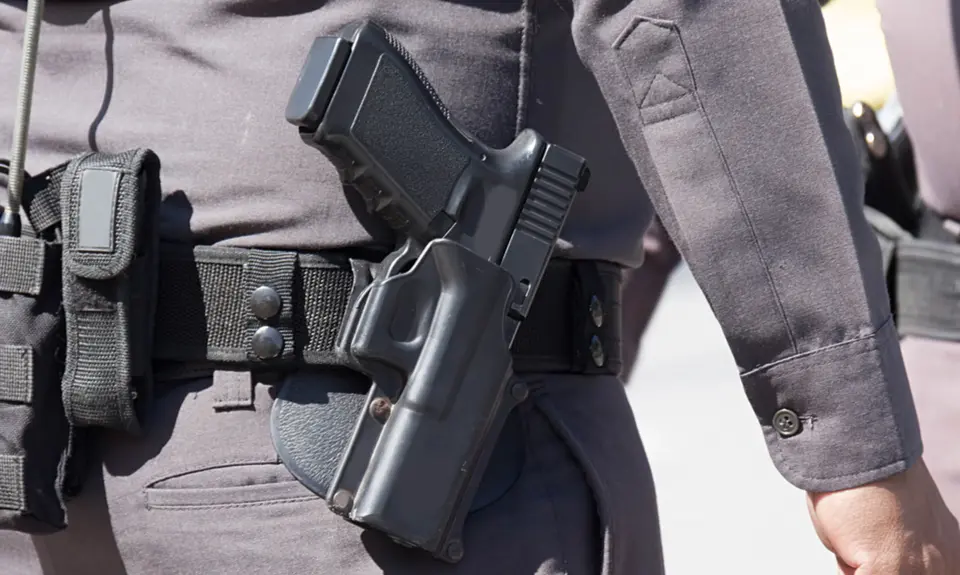“Our Courts, Our Fight” is a blog series documenting the harmful impact of President Trump’s judges on Americans’ rights and liberties and the need for the Senate to confirm President Biden’s federal court nominees to help counteract these effects . Supreme and appellate court cases in the series can be found by issue and by judge at this link.
Trump Eighth Circuit judge Ralph Erickson cast the deciding vote to dismiss the complaint of two black men who were detained and forced to the ground by police, even though they had not committed any previous offense. The December 2021 decision was in Irvin v Richardson.
Two African-American men, 16 year-old Larenzo Irvin and 33 year-old Derrick Bates, were walking along a sidewalk in Cedar Rapids, Iowa when they heard someone behind them shout at them to stop. They turned their heads, saw that it was a police officer, and stopped. Bates stated that they “didn’t do nothing,” but Richardson drew his gun, pointed it at Irvin and Bates, and “ordered them to get on the ground.” Officer Jared Jupin, who had just arrived, did the same. The two black men got down on their knees, but the police ordered that they lie face down on the ground and, when they did, handcuffed them and patted them down. The police found no weapons or anything else suspicious.
Richardson had come to the area in response to a 911 call that there was a disturbance involving three black men. One was described as wearing all blue and another, who was described as heavy set wearing a white t-shirt, allegedly had a gun. On the scene, the caller told Richardson that she saw two black men around the corner wearing white shirts and blue or black pants. Neither Irvin nor Bates matched that description or were heavy set; Irvin was wearing blue and Bates wore a red shirt.
Even though the police found nothing suspicious on either of them and their match to the descriptions by the caller was imperfect at best, the police continued to detain them. Irvin remained quietly seated on the ground with handcuffs on. Bates became upset and questioned why the officers had pulled guns on them and continued to detain them. The officers continued to interview bystanders for several minutes, and found a black man who matched the description of the person with a gun, but found no weapons on him and immediately released him. Finally, after a bystander said he had witnessed the original incident and that neither Irvin nor Bates were involved, and after the two had been handcuffed for almost fifteen minutes, the police uncuffed them and told them they were free to go. Fifteen minutes later, Richardson arrested Bates for “interference with official acts,” although charges were later dismissed.
Irvin and Bates sued for civil rights violations of their Fourth Amendment rights because of the officers’ conduct. A lower court dismissed the claims, as well as an additional claim by Bates for false arrest under federal and Iowa law, maintaining that the officers had reasonable suspicion and were protected by qualified immunity. On appeal, all three Eighth Circuit judges agreed that the decision on Bates’ false arrest claims was improper and should be reversed. As a result of the deciding vote by Trump judge Erickson, however, the court ruled 2-1 to affirm the remainder of the lower court decision dismissing the civil rights claims. According to the majority, the officers had “reasonable suspicion” to “stop and detain” the men under the circumstances and prior precedent.
Judge Jane Kelly strongly disagreed. She explained that based on the facts and the law, the police did not have “reasonable suspicion to stop and detain” Irvin and Bates, particularly given the absence of any ongoing “criminal activity” and the poor match between them and the previous descriptions. As Kelly stated, when Richardson “turned the corner,” the reported criminal activity “had ended, and neither Irvin nor Bates was behaving in a manner” that indicated they were armed or about to engage in criminal activity. The police added to their misconduct as they “continued to keep” the two men in handcuffs, “prolonging the seizure.” The two officers were not entitled to qualified immunity, Kelly concluded, and the decision below should have been reversed so that the two men could pursue their claims.
The case is yet another example of Trump judges like Erickson voting to grant qualified immunity to police and prevent people like Larenzo Irvin and Derrick Bates from seeking accountability for police misconduct. This decision further shows the importance, as part of our fight for our courts, of the Senate confirming fair-minded judges who will allow juries to hold police accountable for misconduct.
